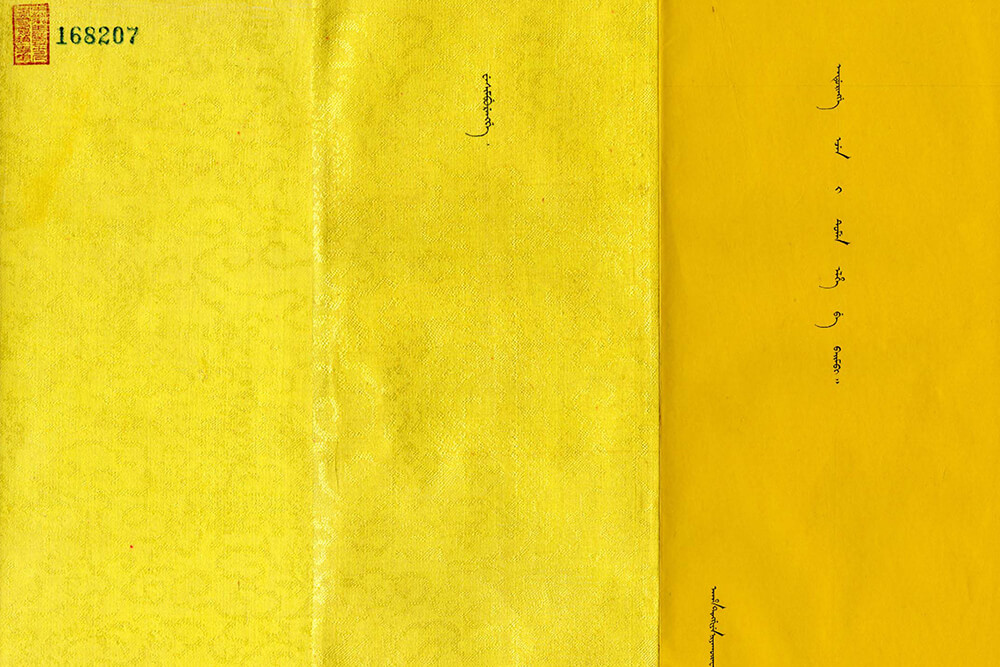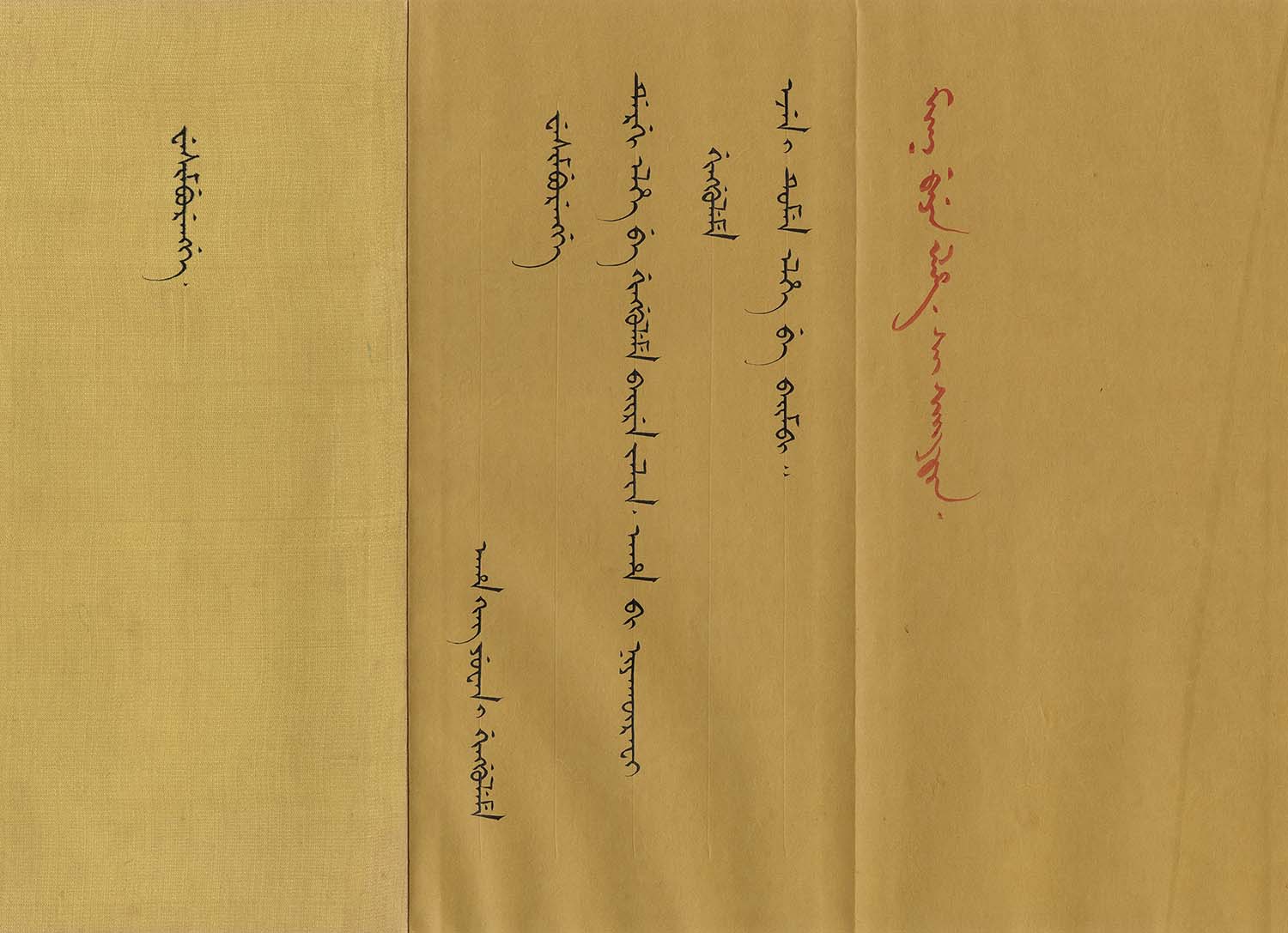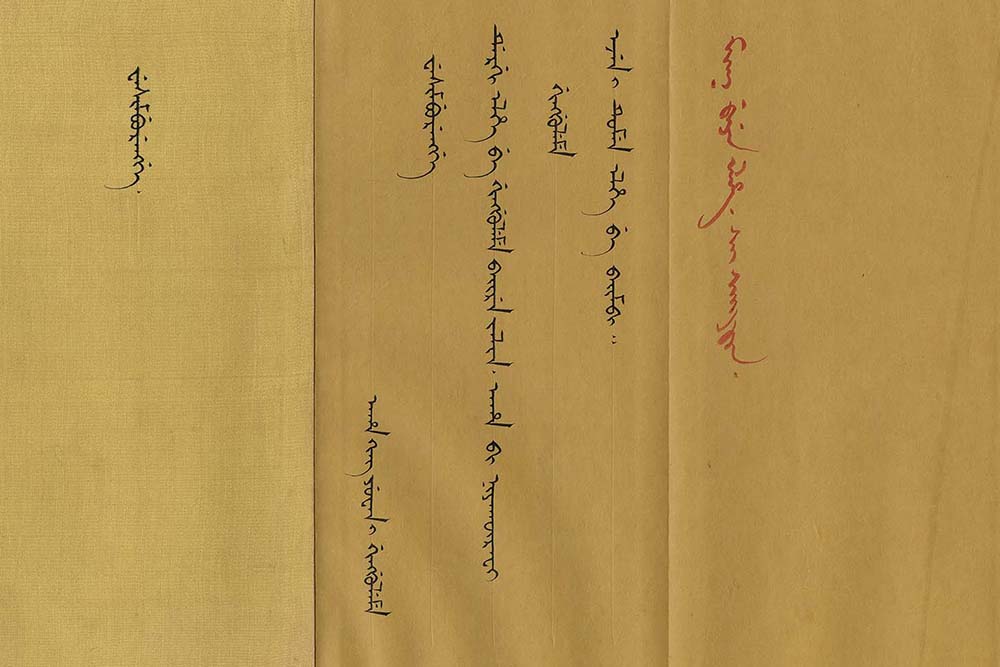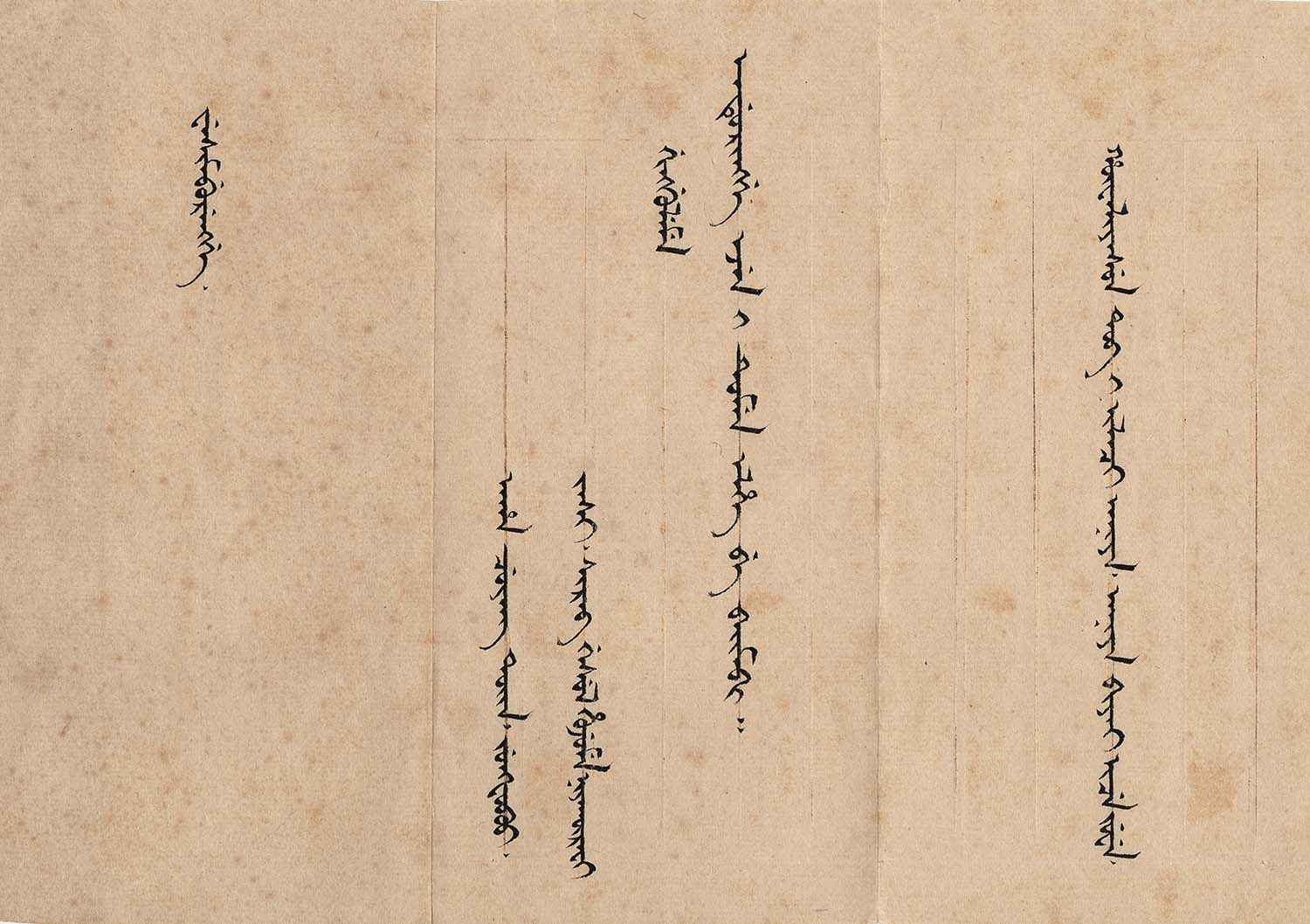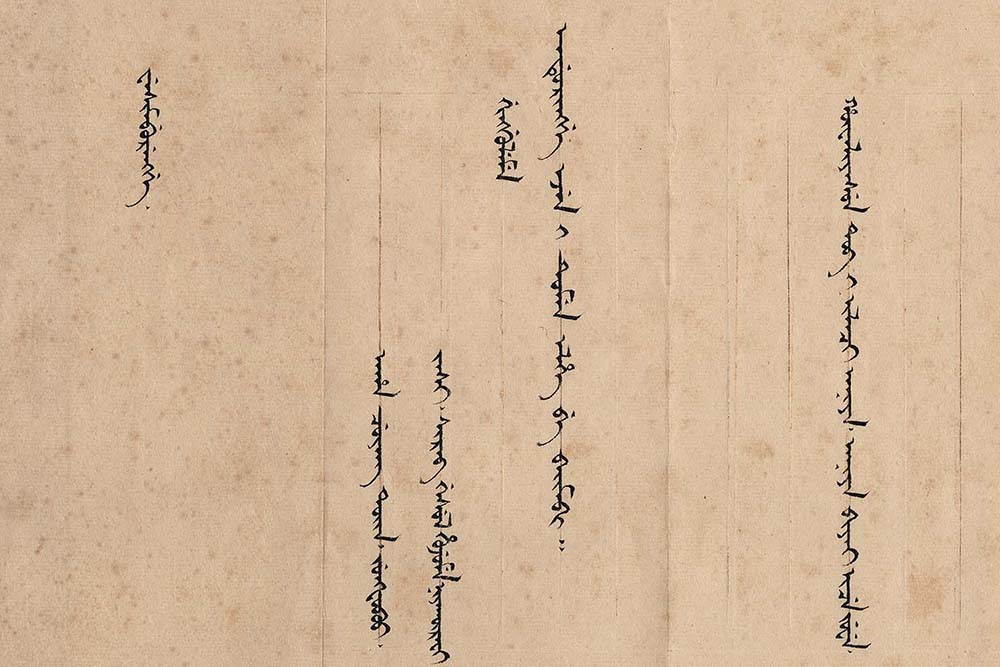The Ruler's Multiple Identities
The Chengde Summer Resort was an important venue where Qing emperors handled ethnic affairs. The Manchu rulers assumed different identities in relation to the different ethnic groups under their governance, sometimes calling themselves "emperor" (hūwangdi) or "Son of Heaven" (abkai jui), other times referring to themselves as "prince" or "khan" (han). Meanwhile, as the head of the Eight Banners (Baqi), the Qing emperor was referred to as ejen by Manchu officials in court memorials. In addition to these monikers, they were also known as "the Emperor Manjusri" (jam yang gongma), a courtesy title used in letters from the Tibetan clergy since the time of Shunzi, the first Qing emperor to rule over China proper. The Qianlong Emperor (r. 1736-1795) even saw himself as the manifestation of Manjusri, and a series of portraits depicting him as the Bodhisattva of Wisdom further strengthened the image he desired to project.
Ejen, the Master of the Eight Banners
Among the official titles of officials at all eight banner levels, the word "ejen" was commonly used. The Manchu alphabet "ejen," which is translated as "master" in English, was originally used to describe the leader of production and military expedition organizations in the Manchu society. Later, following the rise of imperial power, "ejen" gradually became the word used to describe emperors. When ministers submitted palace memorials to the emperors, they frequently said "enduringge ejen" (holy master).
Manchu palace memorial extending greetings to the emperor
- Presented by Tingjie (1840-1911), Commander-in-chief of the Manchu Plain White Banner of Jehol
- 25th day of the 11st month of the 34th year of the Guangxu reign (December 18, 1908), Qing dynasty
In the Qing dynasty, all palace memorials submitted by eight banner officials were written in Manchu. In Manchu palace memorial extending greetings to the emperor, the phrase "gingguleme enduringge ejen i tumen elhe be baimbi," which means "wishing you (the holy master) safety and health" is commonly used. "Enduringge ejen" means "holy master."
Manchu palace memorial extending greetings to the emperor
- Presented by Kingyuwan, Supervisor of the Huaian Customs
- Yongzheng reign (1723-1735), Qing dynasty
This Manchu palace memorial was submitted by Huai'an Pass supervisor Qing Yuan to extend his greetings to the emperor. The palace memorial contains the sentence "gingguleme ejen i tumen elhe be baimbi," which means "may the emperor be safe and healthy." The palace memorial also has the emperor's reply "mini beye elhe. si saiyūn," which means "I am well. How are you?"
Manchu palace memorial extending greetings to the emperor
- Presented by Cuyang toin, et al.,
- 2nd day of the 1st month of the 3rd year of Yongzheng reign (February 14, 1725), Qing dynasty
This is a Manchu palace memorial presented by Chuyangtuojin et al. extending greetings to the emperor. The palace memorial contains the sentence "gingguleme enduringge ejen i tumen elhe be baimbi," in which "enduringge ejen" means "holy emperor." The palace memorial also contains an annex with the words "Palace memorial presented by Chuyangtuojin, Zhongfobao, Xilapu, and Jisule extending greetings to the emperor in 1725."

